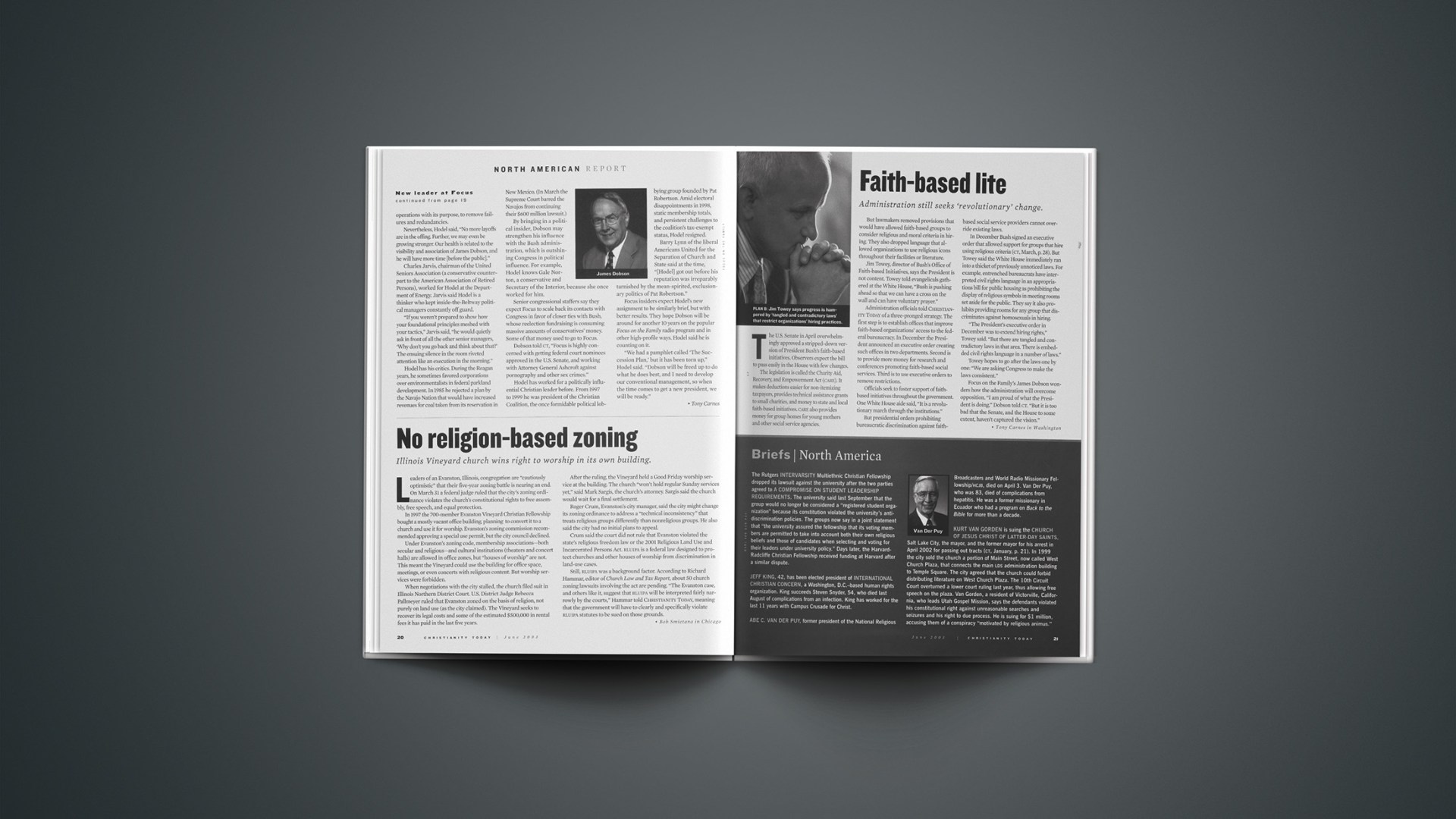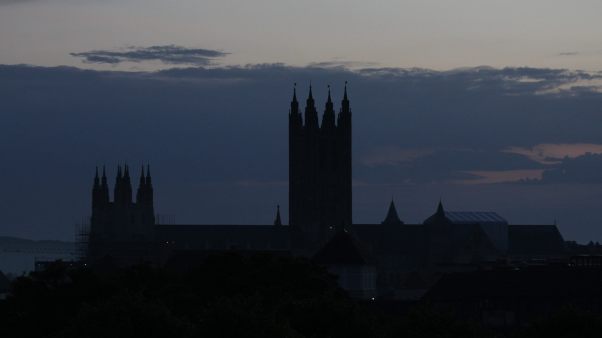Leaders of an Evanston, Illinois, congregation are “cautiously optimistic” that their five-year zoning battle is nearing an end. On March 31 a federal judge ruled that the city’s zoning ordinance violates the church’s constitutional rights to free assembly, free speech, and equal protection.
In 1997 the 700-member Evanston Vineyard Christian Fellowship bought a mostly vacant office building, planning to convert it to a church and use it for worship. Evanston’s zoning commission recommended approving a special use permit, but the city council declined.
Under Evanston’s zoning code, membership associations—both secular and religious—and cultural institutions (theaters and concert halls) are allowed in office zones, but “houses of worship” are not. This meant the Vineyard could use the building for office space, meetings, or even concerts with religious content. But worship services were forbidden.
When negotiations with the city stalled, the church filed suit in Illinois Northern District Court. U.S. District Judge Rebecca Pallmeyer ruled that Evanston zoned on the basis of religion, not purely on land use (as the city claimed). The Vineyard seeks to recover its legal costs and some of the estimated $500,000 in rental fees it has paid in the last five years.
After the ruling, the Vineyard held a Good Friday worship service at the building. The church “won’t hold regular Sunday services yet,” said Mark Sargis, the church’s attorney. Sargis said the church would wait for a final settlement.
Roger Crum, Evanston’s city manager, said the city might change its zoning ordinance to address a “technical inconsistency” that treats religious groups differently than nonreligious groups. He also said the city had no initial plans to appeal.
Crum said the court did not rule that Evanston violated the state’s religious freedom law or the 2001 Religious Land Use and Incarcerated Persons Act. RLUIPA is a federal law designed to protect churches and other houses of worship from discrimination in land-use cases.
Still, RLUIPA was a background factor. According to Richard Hammar, editor of Church Law and Tax Report, about 50 church zoning lawsuits involving the act are pending. “The Evanston case, and others like it, suggest that RLUIPA will be interpreted fairly narrowly by the courts,” Hammar told Christianity Today, meaning that the government will have to clearly and specifically violate RLUIPA statutes to be sued on those grounds.
Copyright © 2003 Christianity Today. Click for reprint information.
Related Elsewhere
The homepage for Vineyard Christian Fellowship has more on its ministries and church life.
Previous Christianity Today coverage includes:
Churches Reject ‘Worship Tax’ (Sept. 6, 1999)
Illinois City Bars Worship at Vineyard-owned Facility (Oct. 26, 1998)
Other recent articles include:
Victory for Vineyard no solution to conflict—The Daily Northwestern (May 2, 2003)
Churches fighting restrictive zoning laws—Religion News Service










